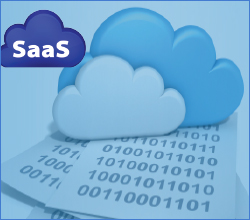
CPT® Changes for 2021
 Lynn Fountain
Lynn Fountain
 60 Min
60 Min
Product Id: 706577
Each year the American Medical Association (AMA) makes changes to the CPT® manual that become effective for dates of service January 1st. This year is no exception with 307 total changes that include 207 new codes, 48 revised codes, and 52 deleted codes.

Leading with Appreciative Inquiry
 Mary T OSullivan
Mary T OSullivan
 90 Min
90 Min
Product Id: 706194
In this webinar, learn why appreciative inquiry works in effective leadership, why traditional “problem solving” doesn’t work and the art of the question to receive a positive answer every time.

Delegating Skills and Holding Employees Accountable
 Audrey Halpern
Audrey Halpern
 60 Min
60 Min
Product Id: 706632
Whether you’re a first-time manager or a seasoned manager, holding people accountable can be frustrating and bring out the worst of emotions and more so when employees are remotely working. Accountability, done effectively, is a skill you can develop just like any other skill, and while it is not a difficult skill to acquire and hone, it does require a high degree of conscious effort and even more challenging when working remotely. This webinar addresses best practices and tips for holding employees accountable from a distance.

Deviation Management - Workshop - Training for the Principal Investigator
 David Husman
David Husman
 4 Hrs
4 Hrs
Product Id: 706623
This workshop is designed to train the principal investigators charged with executing deviation investigations. It will present tools and how they are used to gather facts about a problem, evaluate those facts to determine root cause, develop corrective actions and to tell a coherent story of the execution of the deviation management activity.

HR Law for Supervisors
 Matthew W Burr
Matthew W Burr
 60 Min
60 Min
Product Id: 706631
This training will be an introduction and overview for current HR law’s that impact all organizations. We will discuss at a high-level HR laws (compliance) requirement for supervisors, managers and small business owners. The laws continue to change and evolve, a high-level understanding will be a tremendous value for your organization.

How to Administer Vendor Assessments
 Kenneth Jones
Kenneth Jones
 60 Min
60 Min
Product Id: 706315
Attend this webinar to learn how to set up a vendor responsibility review program. You will get the tools you need to review vendors on various key risk factors.

Modified DD2977: A Simple Alternative to Process Failure Mode Effect Analysis
 William Levinson
William Levinson
 60 Min
60 Min
Product Id: 706381
Attend this webinar to learn how to use DD2977 for relatively simple product realization processes, administrative processes of a quality management system, and services.

Employee Expense Reimbursement Fraud: Detection, Prevention and Deterrence
 Peter Goldmann
Peter Goldmann
 90 Min
90 Min
Product Id: 702455
This 90-minute webinar will summarize the main types of reimbursement fraud to be alert to, and include an analysis of several “real life” case studies. It will explain how to identify the red flags of possible reimbursement fraud, offer specific fraud-audit techniques and test for these crimes and conclude with a rundown of proven anti-fraud controls.

Calculations for Process and Product Capability
 Elaine Eisenbeisz
Elaine Eisenbeisz
 90 Mins
90 Mins
Product Id: 706629
Attendees of this webinar will learn specific concepts and formulas commonly used to measure the ability of a process to produce output within customers’ specification limits. The focus of this webinar is on providing the information needed for attendees to know the appropriate measures and formulas to use for the various types of process data (attribute or variable).

The Essentials of Managing Operational Risk
 Stanley Epstein
Stanley Epstein
 90 Min
90 Min
Product Id: 702359
This course provides a systematic approach covering the fundamental steps needed to manage operational risks in banks and financial institutions. Based on the three-core approach to operational risk management, it expands into critical issues such as risk analysis, risk appetite, probability, impact, and risk mitigation processes. Because external events are an Operational Risk factor we take a brief look at the COVID-19 pandemic.

Big Data and HR: I have the numbers now what do I do?
 Daniel T Bloom
Daniel T Bloom
 60 Min
60 Min
Product Id: 706522
Big Data and HR is a presentation centered around the need for data in HR and what is the best way to obtain the evidence-based data that HR needs to be strategic partners in the organization. It answers the dilemma of answering the question when is it appropriate to understand how something is going to happen versus why it is happening.

COVID-19 Workplace Challenges and Regulator Requirements
 Michael Aust
Michael Aust
 60 Min
60 Min
Product Id: 706497
As an employer, do you know your role and responsibility of ensuring proper regulatory notification, recordkeeping and incident investigation protocols pertaining to the Coronavirus – COVID-19? This webinar will discuss how employers can meet the intent of the OSHA regulations and how to protect their employees from the virus. According to the CDC, the spread of the virus occurs most likely among close contacts (about 6 feet) with another person. The person-to-person spread is thought to occur mainly via respiratory droplets produced when an infected person coughs or sneezes, similar to how influenza and other respiratory pathogens spread.

Leading with Influence: HR's Superpower
 Holly Burkett
Holly Burkett
 60 Min
60 Min
Product Id: 706626
During difficult times, it’s never been more important for HR leaders to effectively inspire, persuade, and engage others. Join this interactive webinar to discover best practices for increasing your influence to move individuals, teams, and stakeholders towards common goals and shared commitments. Compare your influencing approaches to those used by highly influential leaders.

Batch Record Review and Product Release
 Danielle DeLucy
Danielle DeLucy
 60 Min
60 Min
Product Id: 705921
In this webinar attendees will learn the fundamentals for reviewing batch records in a pharmaceuticals, biologics and medical devices environment. Attendees will hear about the proper training that must be demonstrated before one is considered a suitable reviewer of these critical documents and also they will learn how to react to discrepancies found in these records.

Dealing with and Preventing Leave Abuse under FMLA, ADA and Workers' Comp
 Janette Levey Frisch
Janette Levey Frisch
 120 Min
120 Min
Product Id: 704368
This webinar will help you get a working knowledge of how you can minimize your company’s exposure to employee abuse of family and medical leave – be it under the FMLA, ADA, or workers’ comp or other applicable family and medical leave laws.

How to Have High Wages, High Profits, and Low Prices
 William Levinson
William Levinson
 60 Min
60 Min
Product Id: 706613
The Ford Motor Company of the early 20th century proved with bottom-line financial results that high wages are consistent and even synergistic with high profits and low prices. Henry Ford and his contemporaries such as Frank Gilbreth and Frederick Winslow Taylor recognized that enormous waste is built into most jobs at the expense of worker, employer, and customer alike. This webinar will show how the problem is usually correctable very easily once it is recognized, and also how to recognize it on sight.

Navigating the Competing Sanctions Regimes
 Kenneth Barden
Kenneth Barden
 60 Min
60 Min
Product Id: 706612
With BREXIT, the world now has at least three major authorities issuing sanctions and restrictive measures across the global financial system. In addition to OFAC sanctions issued by the US, and restrictive measures of the EU, the UK has its own regime that can impact international trade and financial flows. These are in addition to any sanctions that may be imposed by the United Nations and other national bodies. As the proliferation of these sanctions regimes continue, risks arise that entities conducting international transactions may run afoul of some of the restrictions, due to conflicting and sometimes opposing restrictions.

Payroll 2021 Regulations, Laws, Common Pitfalls and Recordkeeping Requirement
 Dayna Reum
Dayna Reum
 60 Min
60 Min
Product Id: 706628
This webinar will review legislation and record retention requirements that commonly are done incorrectly and can cost your company money. You will learn about the tools and tips to stay compliant with the existing and new legislation.

What to Do During ICE Audits and Raids
 Janette Levey Frisch
Janette Levey Frisch
 90 Min
90 Min
Product Id: 706601
What must you do during an ICE raid or audit? What don’t you have to do? What are and aren’t you allowed to do? How do you manage your employees during an ICE audit or raid? Learn that and more in this webinar.

Recall Management - Regulations and System Requirements
 David Husman
David Husman
 60 Min
60 Min
Product Id: 706622
The purpose of this presentation is to provide an overview of the regulations and guidance applicable to managing Recalls of drugs, biologics and devices in the United States. It will describe the quality management system components that are necessary for supporting recalls and encourage you to prepare for a recall well in advance of any actual need to execute a recall.


























